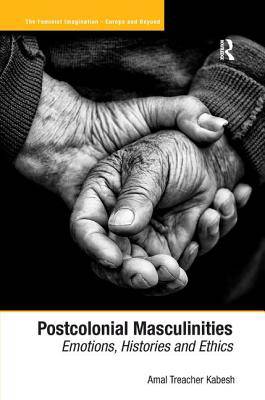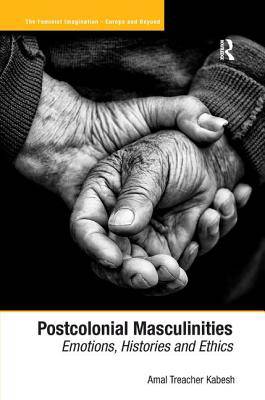
- Afhalen na 1 uur in een winkel met voorraad
- Gratis thuislevering in België vanaf € 30
- Ruim aanbod met 7 miljoen producten
- Afhalen na 1 uur in een winkel met voorraad
- Gratis thuislevering in België vanaf € 30
- Ruim aanbod met 7 miljoen producten
Zoeken
Postcolonial Masculinities
Emotions, Histories and Ethics. by Amal Treacher Kabesh
Amal Treacher Kabesh
€ 202,95
+ 405 punten
Uitvoering
Omschrijving
Exploring the similarities and differences between and across masculinities in the Middle East and the West, Postcolonial Masculinities avoids the constant reinforcement of divisions and stereotypes created by the process of 'othering' and the problematic discourse of the clash of civilisations, examining instead how subjectivities in Western and Arab societies are intertwined, operating through envy of the other and the desire to be at once the same and yet fundamentally separate. With a focus on England and Egypt, this book reveals the manner in which masculinities are shaped in and through a history of colonialism and postcolonialism, irrespective of colour, ethnicity, religion, class, sexuality, or the wishes of the individual. By concentrating on the shared ground of postcolonial, masculine subjectivities, Postcolonial Masculinities looks beyond the dissonance often iterated between the apparently rational Western man and the apparently oppressive, patriarchal Middle Eastern man. Shedding light on the shared and distinctive aspects of masculinities across the Middle East and the West, whilst illuminating the influences upon them, this book will appeal to social scientists with interests in cultural studies, masculinities, psychoanalytic theory, gender and sexuality, and colonialism and postcolonialism.
Specificaties
Betrokkenen
- Auteur(s):
- Uitgeverij:
Inhoud
- Aantal bladzijden:
- 196
- Taal:
- Engels
- Reeks:
Eigenschappen
- Productcode (EAN):
- 9781409422389
- Verschijningsdatum:
- 6/11/2013
- Uitvoering:
- Hardcover
- Formaat:
- Genaaid
- Afmetingen:
- 156 mm x 234 mm
- Gewicht:
- 453 g

Alleen bij Standaard Boekhandel
+ 405 punten op je klantenkaart van Standaard Boekhandel
Beoordelingen
We publiceren alleen reviews die voldoen aan de voorwaarden voor reviews. Bekijk onze voorwaarden voor reviews.











